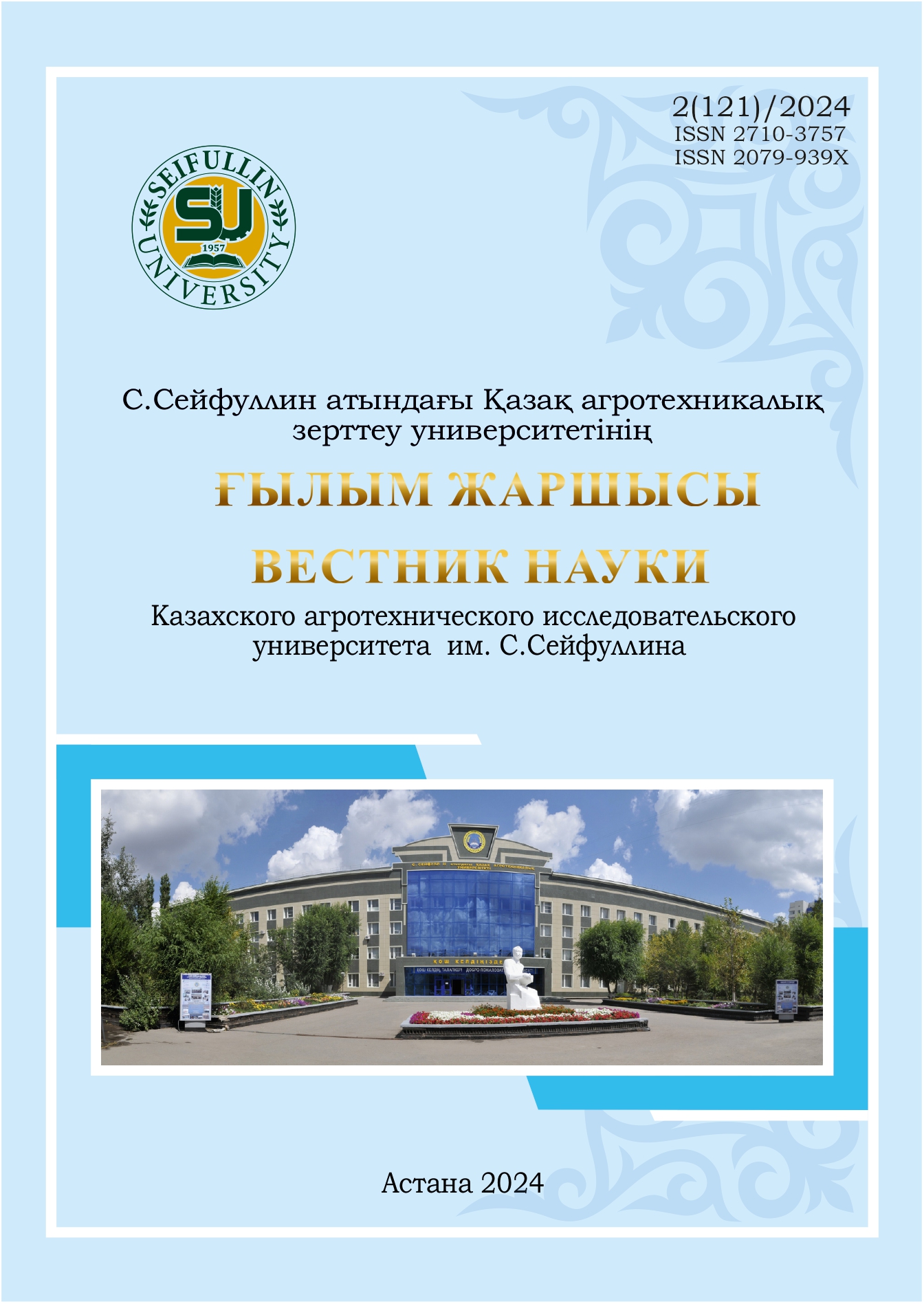ASSESSMENT OF THE RESISTANCE OF TOMATO VARIETIES AND HYBRIDS (SOLANUM LYCOPERSICUM L.) OF KAZAKH BREEDING TO EARLY BLIGHT
DOI:
https://doi.org/10.51452/kazatu.2024.2(121).1689Keywords:
Tomato; early blight; Alternaria; resistance; susceptibility; Solanum lycopersicum; inoculation.Abstract
Tomatoes (Solanum lycopersicum L.) are one of the most important food crops in the world. Early blight caused by a fungus of the genus Alternaria is one of the most devastating diseases of tomatoes worldwide, while crop losses can reach up to 80%. In this reseach, 39 varieties and hybrids of Kazakh breeding were studied to tomatoes screening for resistance to early blight. An isolate of the fungus Alternaria alternata was used to screening for resistance to early blight on an artificial infectious background. The degree of infection of tomato plants at 40 and 70 days was assessed and the percentage of the disease index (PDI) was calculated. The genotypes of VeneraxMechta and GloriaxBSS-335 showed high resistance to early blight compared to other genotypes. The Umit tomato variety was characterized as sustainable with a PDI of 10.0%. Thus, these genotypes can be used in breeding programs to create resistant tomato varieties.

